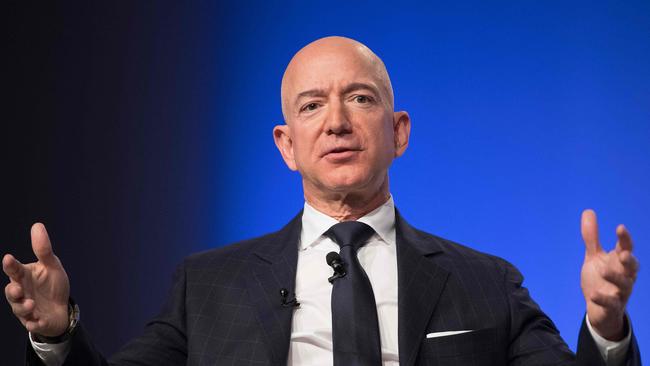Amazon shoppers in Australia pay more for some consumer goods, research finds
Think you’re getting a good deal on Amazon? You may want to think again. New research suggests Aussie shoppers aren’t always getting the best price on the online platform.

Business
Don't miss out on the headlines from Business. Followed categories will be added to My News.
ONLINE retail titan Amazon is struggling to win support from suppliers in Australia, who have grown wary of the US behemoth, new research suggests.
And the online platform is proving more expensive for certain items as Australian retailers fight back, according to a leading analyst.
READ MORE: STA TRAVEL SUED FOR ‘FALSE CLAIMS’
PERFECT STORM HITS AUSSIE HOUSEHOLD WEALTH
Australian consumer electronics champion JB Hi-Fi in particular is “in fighting shape”, investment bank Morgan Stanley says.
In a research report for investors, Morgan Stanley retail analyst Thomas Kierath said he had taken a fresh look at Amazon’s pricing and range, comparing it with those of Australian retailers.

“JB Hi-Fi looks competitive but supermarkets and (sportswear retailer) Rebel less so,” Mr Kierath said.
“Amazon looks to be highly reliant on shipping from the US or the ‘global store’, which limits the current impact on Australian retailers, in our view.”
The US company could face supply constraints, limiting the growth in its product range, as it pushed up against limits in warehouse capacity, he said.
There was also a “potential reluctance” on the part of Australian suppliers to deal with Amazon, he said.
The research suggested suppliers had learnt the hard way overseas about selling their goods on the Amazon platform.
“By selling to Amazon, brands give the company access to the sales data of their products,” Mr Kierath said.
“Amazon can quickly identify top sellers, examine why customers like the product by mining customer reviews, manufacture its own private-label version of that item, undercut on price, and then place it at the top of the search results.”

Mr Kierath analysed the growth in Amazon’s so-called stock-keeping units — effectively the number of different products it has on offer.
His findings suggest Amazon is bulking up its offering here with products from overseas.
“We think there are two possible reasons for this: insufficient Australian warehouse capacity (and) Australian supplier reluctance,” he said.
The report noted Amazon beat JB Hi-Fi on price on only three of the 12 products that were checked, while JB Hi-Fi beat Amazon on five of those products.
“JB Hi-Fi is in fighting shape,” the report said.
“On average, Amazon was 4 per cent more expensive (than JB Hi-Fi),” the report said.
Mr Kierath said that in the grocery sector, Amazon’s strong price competition was an “incremental headwind for Australian supermarkets”.
This week Coles, unveiled plans to ratchet up its online shopping credentials, announcing a $150 million deal with British online grocery specialist Ocado to build two state-of-the-art warehouses and a supply chain system that would boost Coles’ online offering.
Coles is hoping to process more than $1 billion in extra online grocery sales over the next few years as the proportion of all sales conducted online rises from 3 per cent to 6 per cent.



